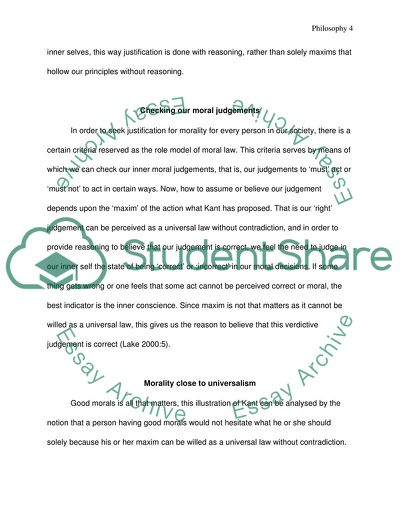Cite this document
(Hare and Kants Point of View Case Study Example | Topics and Well Written Essays - 2250 words, n.d.)
Hare and Kants Point of View Case Study Example | Topics and Well Written Essays - 2250 words. Retrieved from https://studentshare.org/philosophy/1719728-philosophy-hare-kant
Hare and Kants Point of View Case Study Example | Topics and Well Written Essays - 2250 words. Retrieved from https://studentshare.org/philosophy/1719728-philosophy-hare-kant
(Hare and Kants Point of View Case Study Example | Topics and Well Written Essays - 2250 Words)
Hare and Kants Point of View Case Study Example | Topics and Well Written Essays - 2250 Words. https://studentshare.org/philosophy/1719728-philosophy-hare-kant.
Hare and Kants Point of View Case Study Example | Topics and Well Written Essays - 2250 Words. https://studentshare.org/philosophy/1719728-philosophy-hare-kant.
“Hare and Kants Point of View Case Study Example | Topics and Well Written Essays - 2250 Words”. https://studentshare.org/philosophy/1719728-philosophy-hare-kant.


